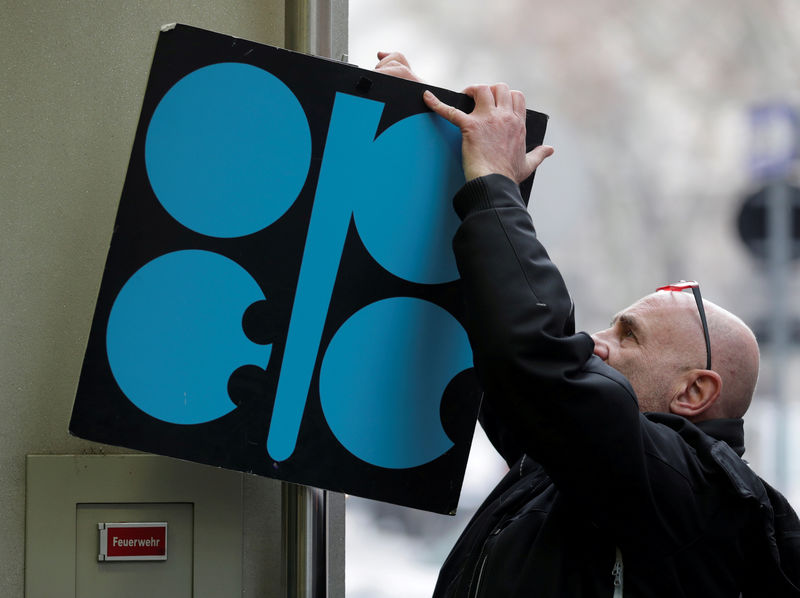By Libby George and Dmitry Zhdannikov
LONDON (Reuters) - Oil prices edged off highs last reached in late 2014 due to rising U.S. stocks but remained well supported by mounting geopolitical tension in the Middle East, shrinking global oil inventories and expectations of a supply cut extension by OPEC.
Brent crude futures (LCOc1) were at $71.84 a barrel at 1315 GMT on Thursday, down 22 cents from their last close. U.S. WTI crude futures (CLc1) were down 12 cents at $66.70.
Both Brent and WTI on Wednesday hit their highest since late 2014 at $73.09 and $67.45 a barrel respectively after Saudi Arabia said it intercepted missiles over Riyadh and U.S. President Donald Trump warned Russia of imminent military action in Syria.
On Thursday, OPEC said the global oil stocks surplus was close to evaporating due to healthy energy demand and its own supply cuts.
U.S. shale oil output has been booming over the past year since OPEC reduced its own production in tandem with Russia to prop up global oil prices.
But as oil production collapsed in OPEC member Venezuela and is still facing hiccups in countries such as Libya and Angola, the oil exporters' group is still producing below its targets, meaning the world needs to use stocks to meet rising demand.
The Organization of the Petroleum Exporting Countries said in its monthly report oil stocks in the developed world fell by 17.4 million barrels in February to 2.854 billion barrels, around 43 million barrels above the latest five-year average.
OPEC Secretary-General Mohammad Barkindo told Reuters in New Delhi the global oil glut has effectively shrunk by nine-tenths since the start of 2017.
"We have seen an accelerated shrinkage of stocks in storage from unparalleled highs of about 400 million barrels to about 43 million above the five-year average," Barkindo said.
OPEC, Russia and several other non-OPEC producers began to cut supply in January 2017. The pact runs until the end of the year and OPEC meets in Vienna in June to decide on its next course of action.
"There is growing confidence that the declaration of cooperation will be extended beyond 2018," Barkindo told Reuters. "Russia will continue to play a leading role."
Despite this, supplies remain ample and analysts said this would weigh on prices eventually.
Barclays (LON:BARC) said that geopolitical events could keep Brent prices elevated above $70 in April and May, but a downward correction was possible in the second half of the year.
U.S. crude oil inventories
